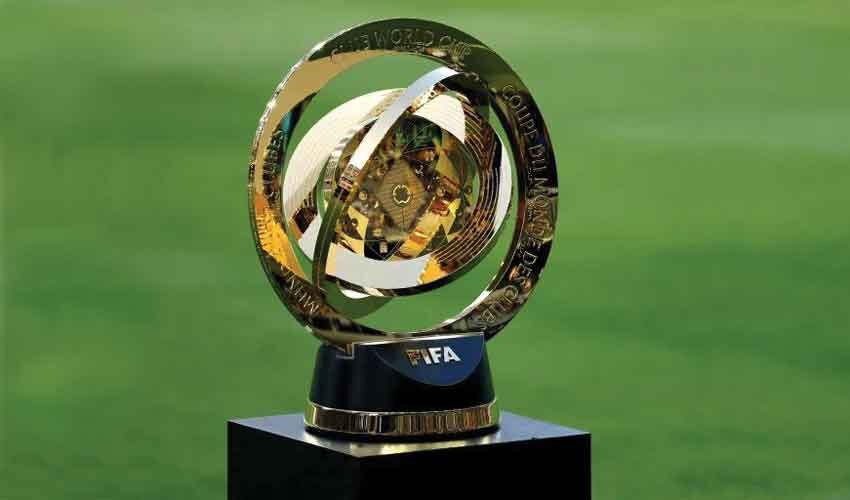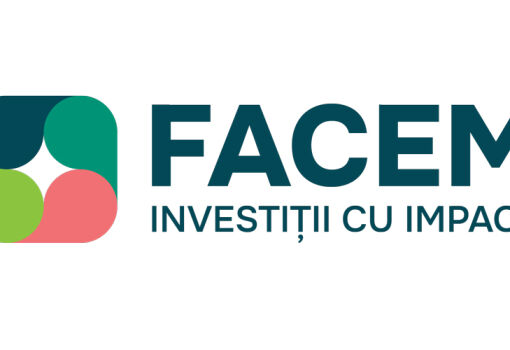
Critics of the Club World Cup (CWC) cite the busy soccer calendar as one of their strongest arguments. In the leading European championships (England, Spain, Italy, Germany and France), the season is very busy. In addition to national leagues and cups, a number of clubs participate in continental tournaments (in Europe and Asia – Champions League, in South America – Libertadores Cup, etc.). Footballers experience fatigue at the end of the season, and a new tournament increases the likelihood of injuries.
With the national championships and the Champions League having just ended, players and coaches are keen to build up their strength and prepare fully for the new season. According to critics, the tournament, which negatively affects the recovery and preparation processes of players, can weaken the national championships and continental cups, as clubs are forced to mobilize their forces to participate in the world tournament. In order to perform more successfully at the ECM, clubs need to allocate resources in such a way that they are sufficient for a longer period of time. This statement was partly confirmed by the performances of Manchester City (England), Real, Atletico Madrid (both Spain), Inter, Juventus (both Italy) and even the finalist PSG, who after the end of a busy season slowed down and did not play to their full potential at the BSC.
The International Federation of Professional Footballers’ Associations (FIFPro) pointed out before the tournament the imbalance between play and rest. The organization issued a statement that even mentioned the Roman Empire. “What was presented as a worldwide celebration of soccer turned out to be just a fiction created by FIFA and promoted by its president Gianni Infantino. There is no dialog with and no respect for those who support the game with their daily labor. The pompousness inevitably recalls the “bread and spectacle” of Nero-era Rome, the entertainment of the masses, while behind the scenes the inequality, instability and insecurity of the true heroes is exacerbated. Infantino thinks he is a god and the decision-making process under his leadership has become one-sided and authoritarian,” reads the communiqué released by FIFPro.
In the wake of criticism of FIFA, footballers’ unions filed complaints with the European Commission and the courts, demanding the abolition of the expanded format of the BSC.
Some coaches and soccer veterans did not stay away and joined the army of critics. For example, former head coach of Mainz 05, Borussia Dortmund (both Germany) and Liverpool (England) Jurgen Klopp called the EFC “the worst idea ever realized in soccer.” “The idea of holding this tournament could have come from people who have nothing to do with soccer. It is being held at the wrong time and for the wrong reasons. I understand those who say that the cash prizes received for participation are huge. But last year there was the European Championship and the America’s Cup, this year there is the Club World Cup, and next year there will be the World Cup for national teams. The players involved will not be physically or mentally recovered,” categorizes the celebrated coach who led Liverpool to victory in the Champions League.
Barcelona (Spain) midfielder Rafinha criticized the organizers for the fact that the players were not consulted about the tournament. His club was not included in the ECF, but his Brazilian national teammates Marquinhos and Lucas Beraldo are PSG players. “It’s hard for footballers to refuse a vacation. We are entitled to it. Every player deserves at least three weeks or a month off. No one even asked if the players agreed with the dates of the vacation. Marquinhos and Beraldo, who won the Champions League with PSG, did not even have time to celebrate the triumph. They went straight to the national team and then to the tournament in the United States, without being given time to recover,” said Rafinha.
Lionel Messi, Luis Suarez (both Inter Miami, USA) and Sergio Ramos (Monterrey, Mexico) were more cautious. They expressed doubt that there is a need to add another major tournament to the soccer calendar. (if necessary to shorten)
Another point of contention for the critics was the criteria for club selection. FIFA began to receive complaints about the fact that, according to representatives of associations from other continents, clubs from Europe were favored, receiving 12 quotas out of 32. South America was represented by six clubs, Asia, Africa, North/Central America by four and Oceania by one. “Inter Miami received the 32nd quota as the club representing the host country of the tournament.
Non-European associations are calling for a review of the quota allocation system to ensure a fairer representation of all confederations. “Al-Nassr” (Saudi Arabia) did not qualify for the EHF despite winning the Asian Champions League 2023/24 as they did not gain enough points in the rankings. At the same time, European clubs that have not won the Champions League in the four-year period that FIFA takes into account were the participants of the tournament. According to critics, the existing selection system does not reflect the real competition in world soccer.
The new format of the BSC also has a solid army of supporters. In their opinion, the tournament, which involves the 32 strongest clubs in the world, a priori becomes more spectacular. Until 2023, the BSC was held with the participation of seven clubs (one from each confederation, as well as a club representing the organizing country).
Supporters are confident that the expanded format made the tournament more competitive, and in the future it will be perceived as a full-fledged club analog of the World Cup among national teams. In addition, non-European clubs get an opportunity to compete with more prominent rivals. And despite the skepticism before the start of the tournament, three non-European clubs – Al-Hilal (Saudi Arabia), Palmeiras and Fluminense (both Brazil) – reached the 1/4 finals. The latter reached the semifinals, where it lost to the future winner of the tournament – Chelsea.
In the final days of the tournament, Gianni Infantino announced FIFA’s revenue generated during the EFC. “We earned more than $2 billion dollars, an average of $31 million per match. This is a huge success, no other tournament in the world comes close to this figure,” he said. And he added that he respects different opinions, accepts them, but as FIFA president, he defends everything the organization does.
To ensure an impressive revenue stream, FIFA signed a contract with British sports streaming service DAZN before the start of the World Cup, which sold the rights to broadcast all matches of the tournament for $1 billion dollars. A significant part of the revenue came from sponsorship contracts.
One of the key partners was the Chinese company Hisense, which provided equipment for VAR systems and LED panels under an agreement worth $90 million. Bank of America became the banking partner of KCM, declaring its intentions to invest more than $100 million in the tournament and the World Cup-2026. Brewery corporation AB InBev (brand “Budweiser”) with headquarters in Leuven (Belgium) in 2023 extended the contract, which allows to be the exclusive beer partner of FIFA. The value of the agreement is not named, it is only known that the previous four-year contract was $75 million.
FIFA could count on its regular sponsors as well. The contract with Germany’s Adidas, which supplies the official ball and referees’ uniforms, signed back in 2013, provides FIFA with $800 million until 2030. The agreement with the American company Coca-Cola, signed in 2023 and valid for seven years, is estimated at $400 million. Visa, Hyundai, Qatar Airways and Lenovo also remain FIFA’s partners.
The Club World Cup, according to organizers’ estimates, could generate significant economic impact – up to $21.1 billion for the global economy and $9.6 billion for the United States. These amounts include fan spending during the tournament, revenues from match ticket sales, merchandise, tourism growth and the impact on related industries.
In a year’s time, the U.S., Mexico and Canada will host the World Cup, which is far superior in stature to the World Cup. Despite the fact that European-style soccer is not very popular in the U.S. and Canada, FIFA has proven that it can organize a highly profitable tournament even in countries where soccer is not the No. 1 sport.
|
Club World Cup 2025* Club World Cup prize money* |
||
|
№ |
Club |
Prize money |
| 1 | “Chelsea (England) |
$114.6 million |
| 2 | PSG (France) |
$106.9 million |
| 3 | “Real (Spain) |
$82.5 mln |
| 4 | “Fluminense” (Brazil) |
$60.8 million |
| 5 | “Bayern Munich (Germany) |
$58.2 mln |
| 6 | “Borussia Dortmund (Germany) |
$52.3 mln |
| 7 | “Manchester City (England) |
$51.7 mln |
| 8 | “Palmeiras” (Brazil) |
$39.8 mln |
| 9 | “Inter (Italy) |
$36.8 mln |
| 10 | “Al-Hilal” (Saudi Arabia) |
$34.2 mln |
| 11 | “Benfica (Portugal) |
$32.2 mln |
| 12 | “Flamengo” (Brazil) |
$27.7 mln |
| 13 | “Botafogo” (Brazil) |
$26.7 million |
| 14 | “Juventus (Italy) |
$26.6 mln |
| 15 | “Porto” (Portugal) |
$24 mln |
| 16 | “Atletico Madrid (Spain) |
$21.4 mln |
| 17-
18 |
“Inter Miami (USA) |
$21.1 million each |
| “Monterrey | ||
| 19 | “River Plate (Argentina) |
$18.2 million |
| 20 | “Boca Juniors (Argentina) |
$17.2 million |
| 21 | “Salzburg (Austria) |
$15.8 million |
| 22 | “Mamelodi Sundowns (South Africa) |
$12.6 mln |
| 23-25 | “Al Ahly (Egypt) |
$11.2 million each |
| “Al Ain | ||
| “Espérance (Tunisia) | ||
| 26 | “Los Angeles Galaxy |
$10.6 million |
| 29-31 | “Pachuca (Mexico) |
$9.6 million each |
| “Seattle Sounders | ||
| “Ulsan (South Korea) | ||
| “Urawa Red Diamonds (Japan) | ||
| “Wydad (Morocco) | ||
| 32 | “Auckland City (New Zealand) |
$4.6 million |
| * At the end of the BSC, the clubs’ revenues will increase due to non-prize revenues: interest from the sale of TV rights, sponsor payments, etc. | ||



